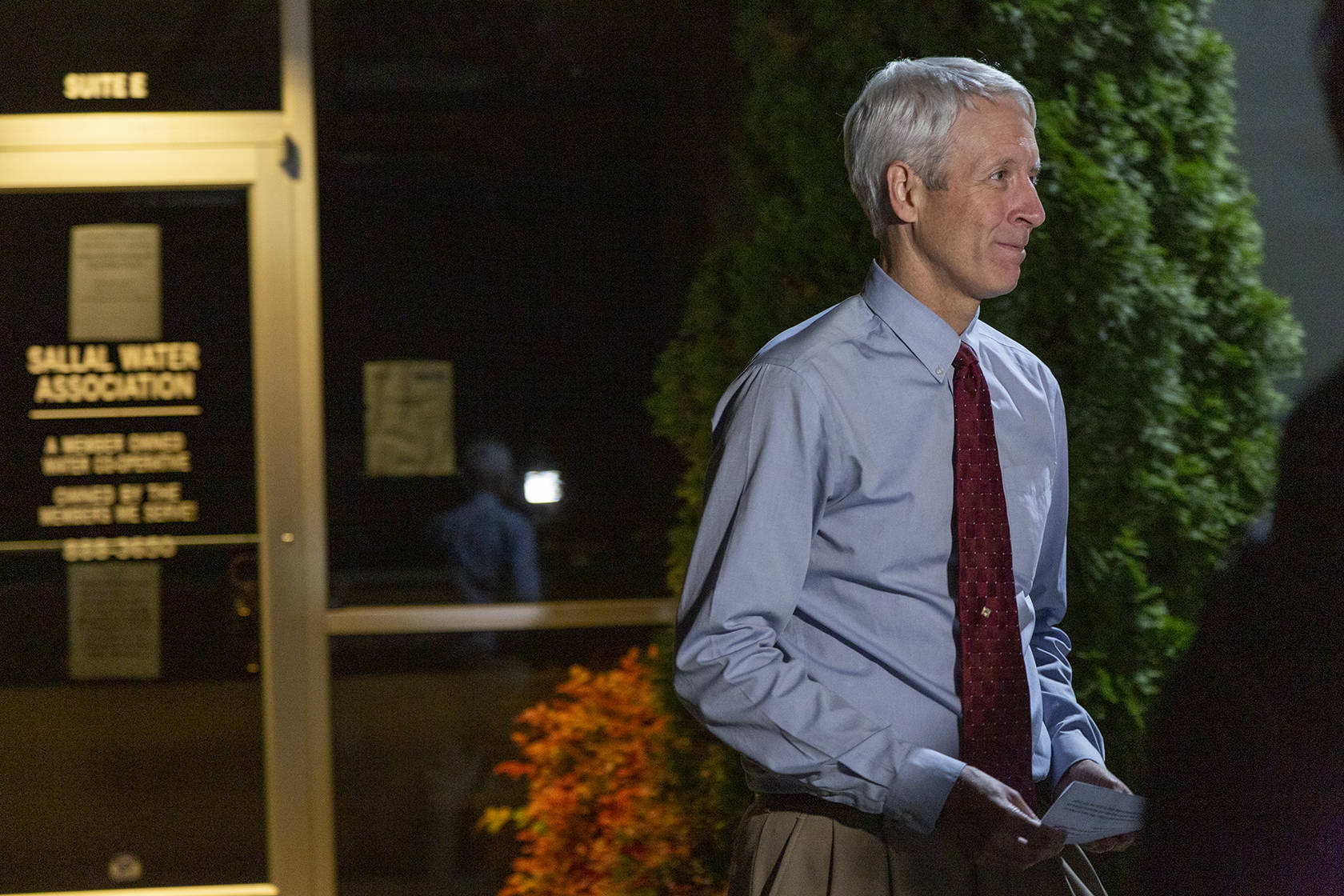As Rob Morgan walked into the Snoqualmie Casino he worried about his children washing their hands with Sallal water.
Cynthia Tracy said she had been giving her three Labradors bottled water to drink. She was concerned about the impact E. coli could have on her oldest dog.
More than 250 others packed the ballroom at the casino on Wednesday. The Sallal Water Association held a meeting after they discovered the bacteria known to cause cramps, nausea and diarrhea in their water source. The association serves more than 5,000 people residing in and around North Bend.
Twenty-five tests across the system confirmed the water was contaminated on Sept. 20, continuing a boil water advisory along with the disbursement of free bottled water.
“It seems like it’s taking a while,” Morgan said of Sallal’s response.
In reaction to the outbreak Sallal has begun chlorinating its water as of Sept. 20. Previously the water drawn from the association’s three wells had been untreated. Chlorine is being administered to storage facilities and then flushed through the system to treat it. However, Well 2 itself tested positive for E. coli and is currently shut down as it’s being fully treated.
Washington State Department of Health (DOH) representative Bob James said chlorine administered directly to Well 2 may not have enough time to fully cleanse the water before it reaches the first hookup. This means for the time being, it is out of commission. Well 3 has had an automatic chlorine distribution pump installed and Well 1 will have a pump installed within the next few days. James said Well 2 will remain shut down until an analysis can be completed.
Sallal board president Eric O’Brien said before residents are able to consume water, two sets of system-wide tests have to be completed, 25 in total throughout the seven different pressure zones.
Currently, there has been no source located for the contamination, but O’Brien said the contamination was not caused by someone breaking into the system.
At the earliest, they’re hoping the water will be deemed safe to drink again by the middle of next week, dependent on how quickly test results come back.
“We’re trying to disinfect the system the quickest and easiest way with chlorine,” O’Brien said. “There’s other technology we could look at but it has costs and other issues.”
For the time being, O’Brien said Sallal will continue using chlorine.
There were mixed feelings in the room about using chlorine to treat the water. James said Sallal could eventually stop using chlorine if they could ensure the water was free from contamination.
“It’s not going to be quick, but again, we’re willing to work with Sallal,” James said.
There are only a handful of similarly sized water systems James said he is aware of that are unchlorinated. The managing organizations also meticulously follow best practices. And contamination can enter a closed water system any time it’s opened up, when a water main breaks or new hookups are created.
“It’s challenging to remain unchlorinated in this day and age,” James said.
This is the first incident of this magnitude that the association has had in its 50-year history, according to a statement issued by Sallal following the meeting. However, last November water was compromised when teenagers broke into the Terrell tank.
Due to association members having to boil or consume bottled water, the City of North Bend and Republic Services have provided a large recycling dumpster as of Sept. 23. It’s located at Torguson Park for Sallal costumers to drop off their empty water bottles. The dumpster will be open from 7 a.m. to 6 p.m. daily until further notice.



